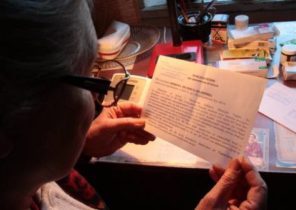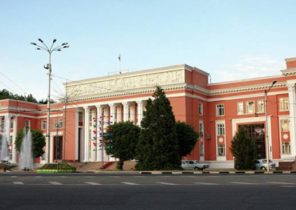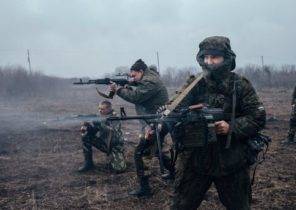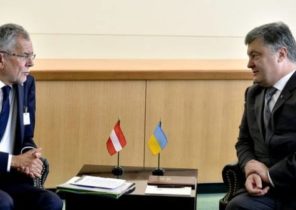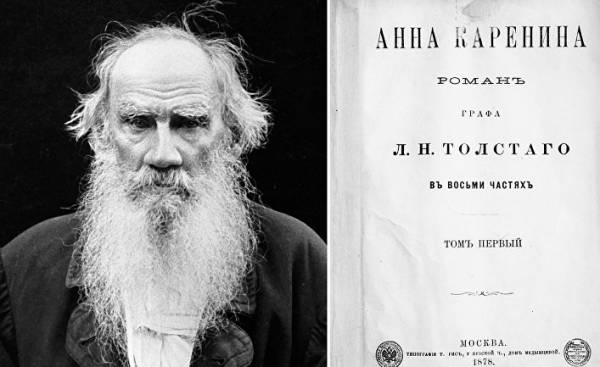
Still not over the screening of the television series “Anna Karenina” in the interpretation of Karen Shakhnazarov, and already begging for its continuation. Let me remind you: a novel of Tolstoy mixed with Veresaeva stories about the Russo-Japanese war.
Aged Vronsky (Maxim Matveev) meets on the war grown Seryozha Karenina (Kirill Grebenshchikov) — the medic heals and Vronsky in the infirmary. In the short respites between fights recovering Vronsky tells the doctor about his affair with his mother, Anna Karenina (Elizaveta Boyarskaya), and his father Alexei Karenin (Vitaly Kishchenko).
Have not yet worn shoes, which I watched the new pride of the Russian television immediately suggest a sequel. 1917. In an old manor house, the room sits an old man with a plaid blanket wrapped legs and looks at the faded photograph of the Knights. A young man in leather jacket. The old man screams. “Lord, how like! You wouldn’t happen to the grandson of Ani Karenina?” “Yes, I Aleksei Karenin, a red Commissar, I came to avenge my grandmother.” Takes out a revolver. “Wait, first I’ll tell you how I met your father in the Russo-Japanese war”.
Next, Vronsky tells Alexei as he told his father, Sergei a love story with Anna. 1917 mixed with 1904, which, in turn, is mixed with 1872. version Vronsky Anna does not die, but under the name Inessa Armand returned in a sealed train in the same compartment with Lenin from Germany, where he was hiding all these years from a vengeful kitty Shtcherbatsky. Karenin silently drops the gun and hugs Vronsky, they cry together, looking at the portrait of Boyar. Out of the corner applauding Shakhnazarov. Bursting with a portrait of Tolstoy soldiers and sailors shot the whole congregation.
Phew, what nonsense? Of course, nonsense… I’m the Only one willing to admit it, and Karen G. on the eve of the screening of the film on TV, beginning to articles about what the Russo-Japanese war was the forerunner of the October revolution, thereby again justifying the granting of large public money by “Anna Karenina.” And the very idea of adaptation. So the film, consider the 100th anniversary of the revolution. Tricky. How else to explain the hills of Manchuria coupled to the novel by Tolstoy is unknown. Although in this drama the course is nothing terrible or wrong. Just a few days before “Anna Karenina” had to watch “hamlet” directed by Lev Dodin, who gave the characters in the play replicas of Macbeth, the play — scenes from “King Lear,” from some of the characters like Laertes escaped at all, and Ophelia dies at the hands of Claudius and Gertrude. Like it or criticize this statement, not to recognize the obvious it is impossible: all dudinskii pranks are functioning properly on its own, original interpretation pieces, fringed and interspersed with traits of hamlet, which seem to be important to the Director, for example, he finds the Prince a sudden lust for power. Even with Karenin Vronsky hang out in the Russo-Japanese war, Tolstoy did not lose anything, but then be so kind as to explain why. But while this series does not follow.
Let us not only to compare anyone with anyone. And some can’t for one Karenina to look after Tatiana Samoilova, someone longs for Nikolai Gritsenko in the role of Alexei Karenin, someone refuses to watch “the Idiot” after he was not a “War and peace” — after Tikhonov, “the Quiet don” — after Glebova, of hamlet after Laurence Olivier, someone does not recognize any of the film adaptations, because it is better to tell it than the author of a literary work, and no one will say.
All this logic from evil — talented adaptation only for the benefit of the literary source, because it helps a person competent and unblinkered open a previously invisible meanings in favorite novels, novellas and short stories. And if almost the thing to watch — well will not protect you from free classics to her treatment. Classic — it is on the classics, which eventually becomes national property, a national heritage, as you know, more a draw than someone else. The farther, the more clearly will be a classic similar to the folklore, which shamelessly subjected to various interpretations, arrangements, paraphrases and rehash. I mean, nobody requires the film makers is understood and discharged Karenina, Vronsky, Growth and Karamazov.
As for the “Anna Karenina”, her romanticizing and attitude as a victim of the regime was the main defect of all Soviet productions of this novel Tolstoy. Majestic proud beauty, the fallen death of the brave on the field of battle with public morality, what it drew and Alla Tarasova, Tatiana Samoilova, and the heroine of many theatrical productions, was, I think, probably the most hated character of Leo Tolstoy. Adept family values, Cerberus Patriarchal morality in the second half of life, Tolstoy could not bring himself Christian to love Anna, painted by the lady of the hysterical, self-centered, at the end of life — a drug addict and in man has spoiled the lives of all their loved ones. The topic of drug abuse, however, domestic interpretation has always shamefully avoided, except for the film of Sergei Solovyov 2009.
Monopoly on the images of a literary work no one, even the author of the novel. As there can be a common understanding of the spirit of the story, its mood, common thoughts and common sense. The only thing to be considered is the presence in the film adaptation of the conflict that was laid by the author of a literary work. Has to be the truth of fiction, which threshold will disregard any audience “No way!” Can Vronsky in the movie to bring at least a chubby dwarf in the style of Danny DeVito, but we must know and believe that this Anna Karenina might like this Vronsky. But no matter how tried we would believe in love Anna Maxim Matveyev — a beautiful, high, okay, the whole story of the tragic triangle Anna-Vronsky Karenin initially meaningless, because Anna Karenina is simply not might like sluggish, forever sad, rag being male, which here appeared to Vronsky.
Vronsky never carried this worthy man, who sacrificed their welfare for the sake of a frivolous hysteric Anna, the screen always appeared as a gray background, which raged the relationship of Anna and Karenin. What Lanovoy as a monument to himself that Yaroslav Boyko Solovyov — also some gray and a rag that beautiful, but obviously a bit old Sean Bean Bernard rose (Sophie Marceau in the role of Anna), Aaron Taylor-Johnson Joe Wright (keira Knightley) is burning, but is also a puppet. Sorry for Vronsky, I swear. But at least Konstantin Levin, in which Tolstoy brought himself lucky — his film adaptation of Shakhnazarov’s simply no.
But I will finish all the unpleasant, don’t blame me. I have not seen that as soon as the artist begins to spend forces, time and energy of his talent on the too active support of the authorities, to justify the war waged by his country, to sow hatred on the TV — somehow miraculously his talent offended and quietly takes his leave. What suddenly think about it? Oh, don’t even know…

